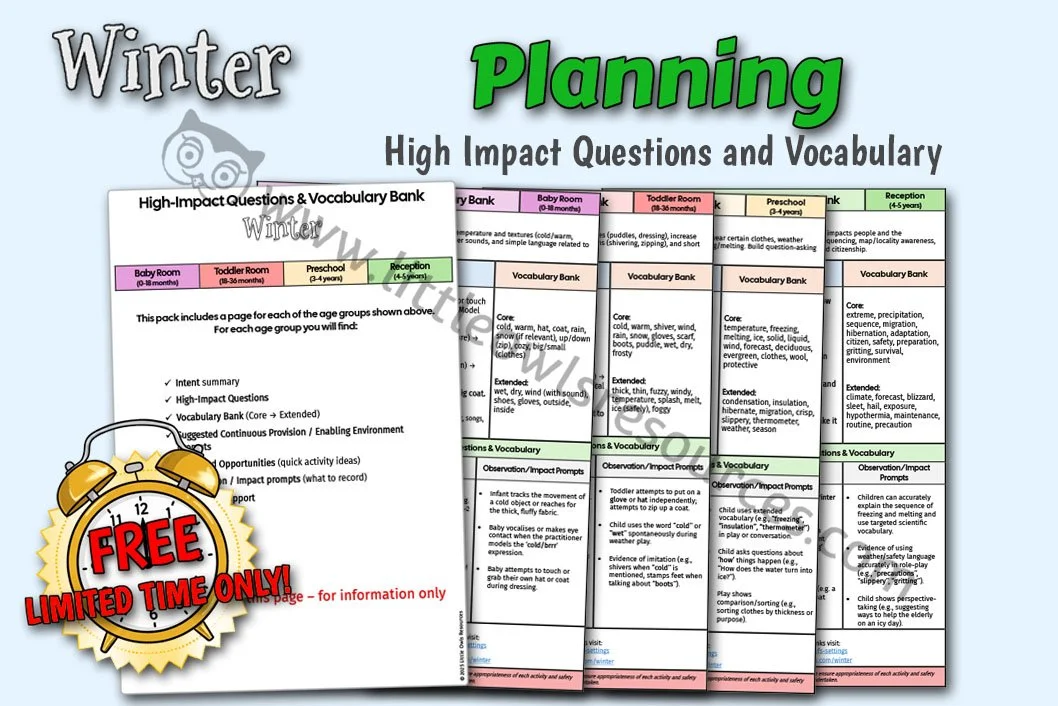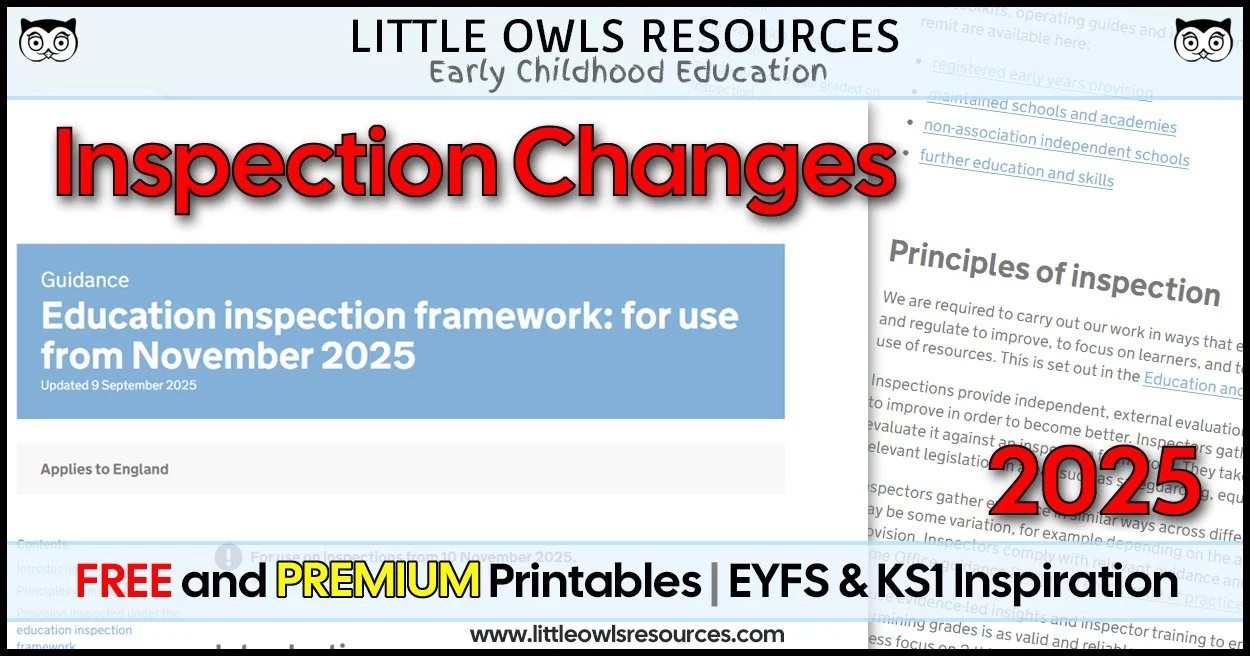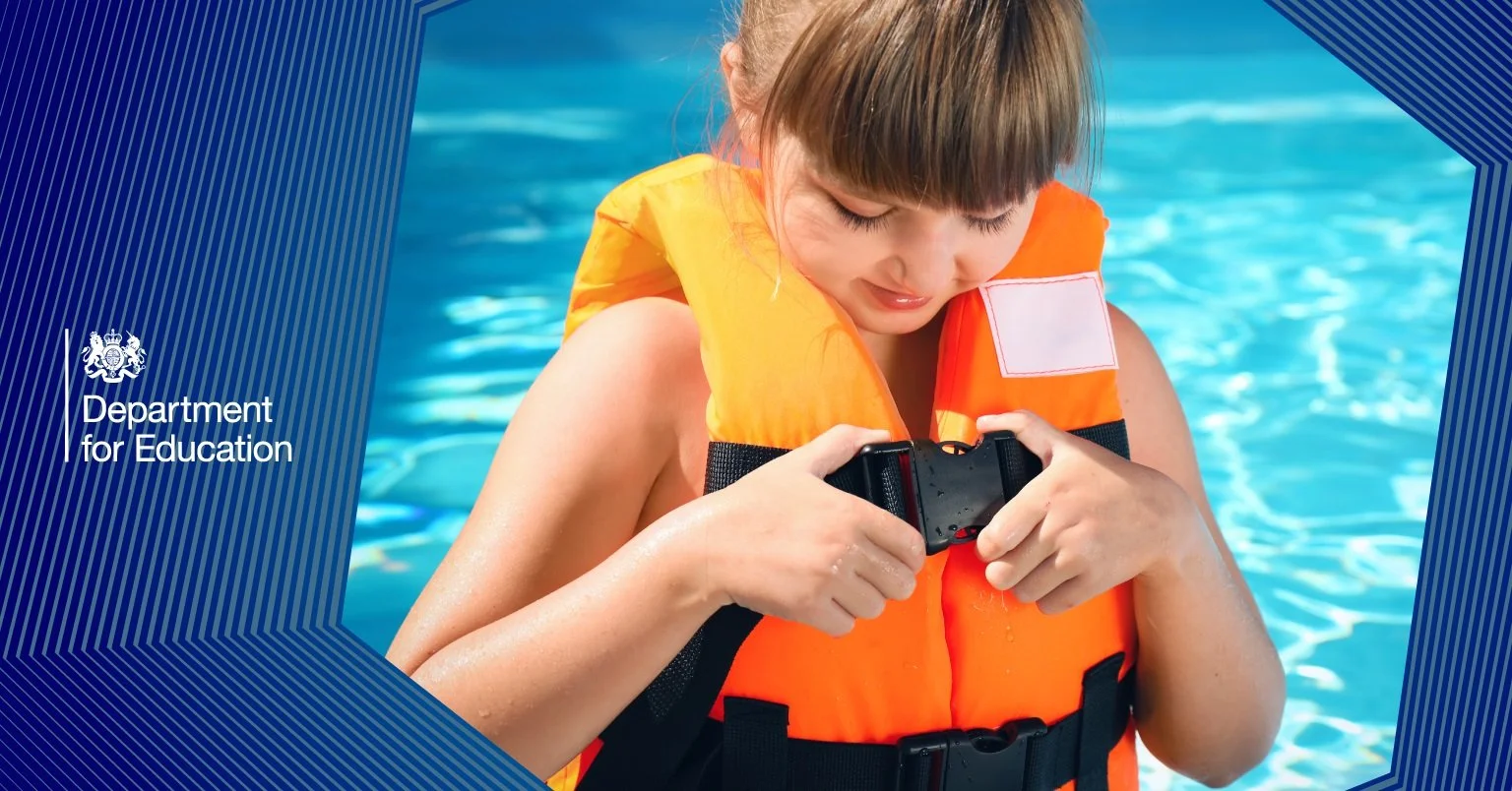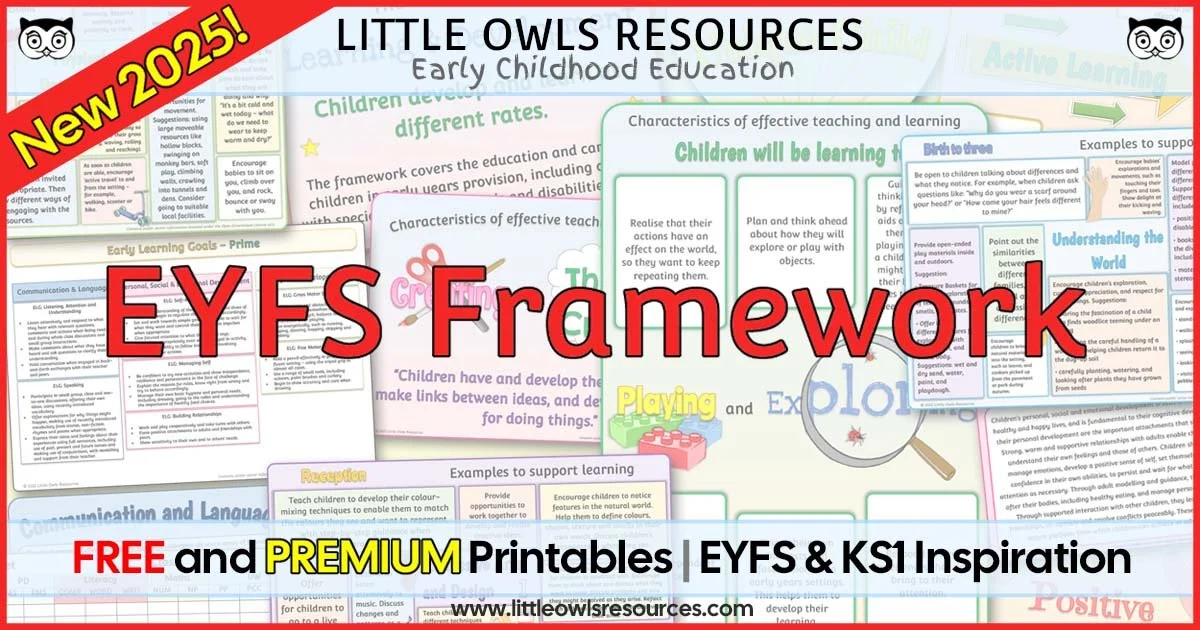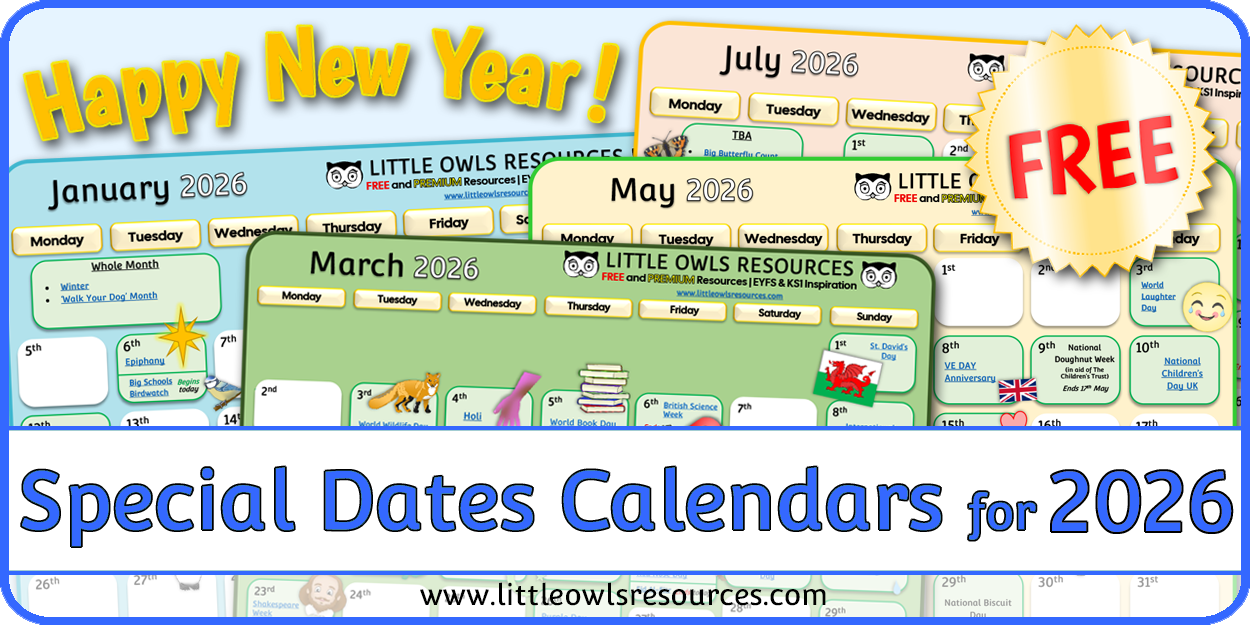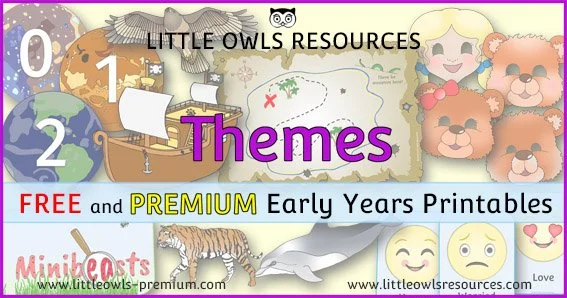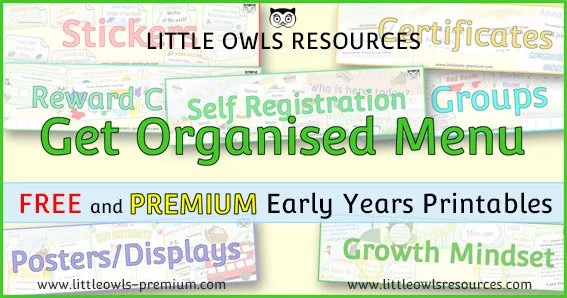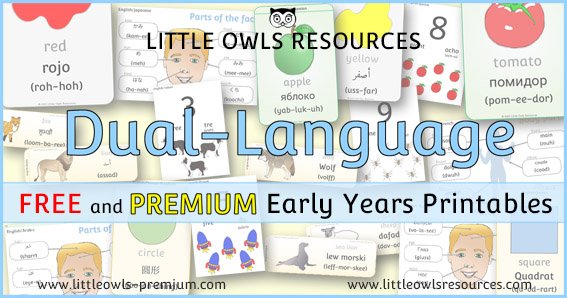






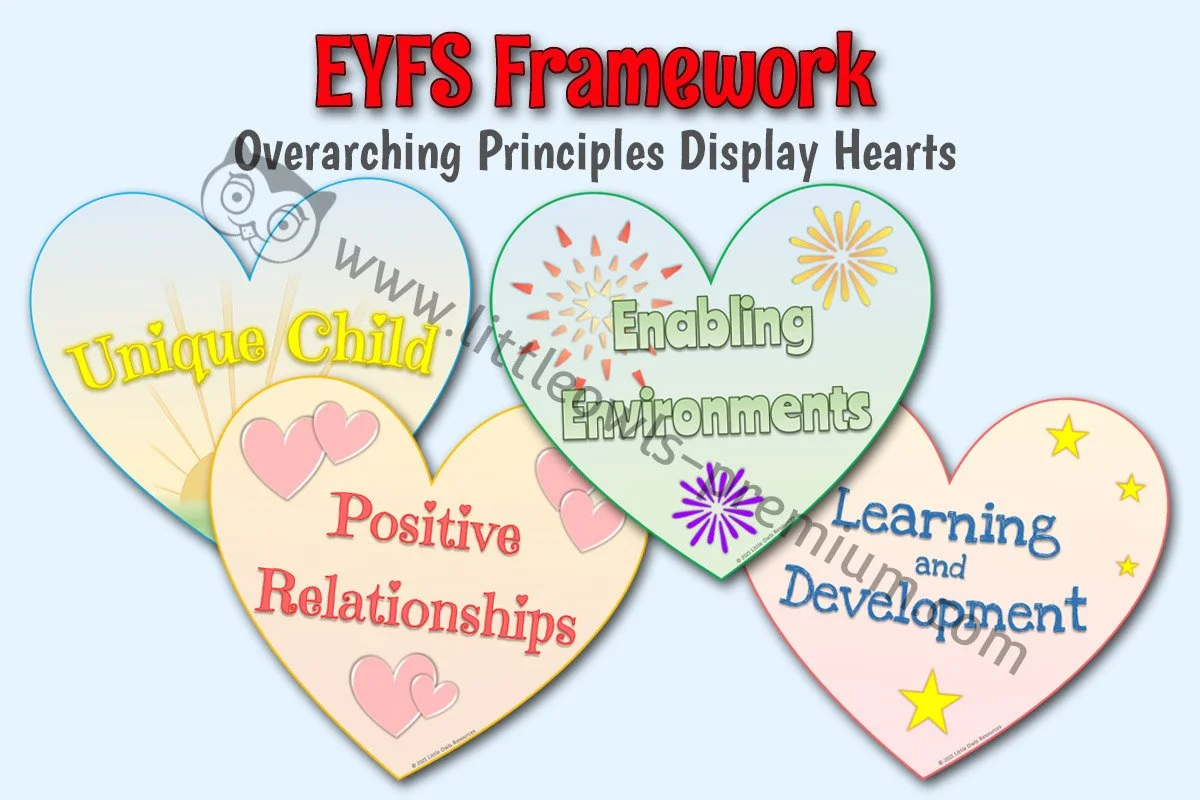

Please note: This is a brand new page.
Additional detailed and comprehensive planning and provision resources are currently in development and will be published here shortly.
Begin Your Planning and Provision Journey
If you are looking to find provision based on the age of your child(ren), please select a hub page below:
Baby Room Planning | 0-18 Months
Toddler Planning | 18-36 Months
Preschool Planning | 3-4 Years
Reception Planning | 4-5 Years
Childminder Planning | 0-5 Years
Would you like to browse our planning provision packs by type?
Central Principles to ‘Unique Child’ Planning
Curriculum Intent Statement
Whole-Setting Curriculum Map
Long-Term Curriculum Overview Maps (by age)
Early Years Schemas - Practitioner Toolkit
Continuous Provision Planning
Half-Term Curriculum Maps
Theme-Based:
High-Impact Question & Vocabulary Banks
Continuous Provision Enhancement Packs
Enabling Environment Packs
Adult-Led Opportunities
Or are you looking for planning and provision based on special event dates?
Alternatively, please feel free to explore our support and guidance materials:
Early Years Foundation Stage Framework Guidance and Resources
EYFS Policies (UK, Birth-Five)
Plus further planning and provision support for EYFS settings:
EYFS Planning & Provision FAQs
-
The Early Years Foundation Stage (EYFS) framework in England sets out the statutory requirements for all early years providers, including childminders, nurseries, preschools, and school reception classes. While the framework is not prescriptive about the exact format of planning, it does provide clear guidance on the principles that must underpin it. The EYFS framework provides a flexible approach to planning, moving away from rigid, tick-box exercises. The key focus is on knowing the children in your care and using that knowledge to plan a curriculum that meets their individual needs and interests.
-
The key principle is that planning should be flexible and responsive to the individual needs and interests of the children. The focus is on a high-level curriculum and how it is implemented, rather than on rigid, detailed lesson plans.
-
The EYFS statutory framework itself does not mandate specific formats for planning, such as long, medium, or short-term plans. Instead, it emphasises that practitioners must:
Be ambitious for all children.
Consider the individual needs, interests, and development of each child.
Use this information to plan a challenging and enjoyable experience for each child.
However, many settings use these concepts in a tiered approach as a way to structure their curriculum to ensure they are meeting all the requirements and achieve a well-rounded and progressive curriculum.
-
There is no prescribed format for EYFS planning. Ofsted and other governing bodies are more interested in the impact of the planning on children's learning than the physical documents themselves. Effective planning should be a tool for practitioners, not a burdensome task.
The EYFS framework is deliberately flexible to allow practitioners to use their professional judgment. There is no one-size-fits-all format. However, effective planning for the EYFS should:
Be informed by the seven areas of learning: All planning must be rooted in the seven areas of learning:
Prime Areas: Communication and language, physical development, and personal, social and emotional development.
Specific Areas: Literacy, mathematics, understanding the world, and expressive arts and design.
Focus on the "Curriculum": The EYFS defines the curriculum as everything you want children to experience, learn, and be able to do. Planning is about how you deliver that curriculum.
Be responsive to children's interests: The best planning is based on observations of children's play and interests. Practitioners should use these observations to provide "enabling environments" and activities that extend children's learning.
Integrate child-initiated and adult-led activities: A good plan will strike a balance between providing opportunities for children to lead their own play and for adults to introduce new concepts, vocabulary, and skills.
Be "working" documents: Planning should be something that is regularly referred to, reviewed, and adapted. It is not a static document.
In summary, while the EYFS does not require a specific planning format, it does require providers to have a clear and ambitious curriculum that is planned and sequenced to ensure all children make progress. The level of detail and format is for the individual setting or childminder to decide, based on what works best for them in meeting the needs of the children in their care. The emphasis is on the quality of the provision and the outcomes for children, not on the paperwork.
Latest Planning & Provision Essentials for EYFS Settings:
Featured below are a few examples of our latest planning materials. Please browse using the arrows to the left of the carousel. (Additional resources currently being developed by our Little Owls Resources team. 😊)
Latest EYFS Articles & Practical Guides | From Our Blog
Stay informed and find inspiration from our collection of articles, tailored specifically for EYFS practitioners. We regularly publish in-depth articles to support you with current best practices, regulatory changes, and fresh ideas.
Useful Organisations & External Resources
Find support and further information from leading organisations in the early years sector.
Ofsted: The official body for regulating and inspecting schools and childcare providers in England.
Department for Education (DfE): Access official government guidance and policies related to early years and childcare.
NSPCC Learning: Essential resources and training on safeguarding and child protection.
Website: https://learning.nspcc.org.uk/
Early Years Alliance: A large and representative early years membership organisation offering information, advice, specialist publications, and training that supports a wide range of early years providers.
Website: https://www.eyalliance.org.uk/
British Association for Early Childhood Education (Early Education): A national charity dedicated to promoting high-quality early childhood education through professional learning, resources, and advocacy for all early years practitioners.
Website: https://early-education.org.uk/
PACEY (Professional Association for Childcare and Early Years): Although a key body for childminders, PACEY also provides resources, training, and advice that can be valuable for practitioners in additional EYFS settings, particularly smaller ones or those with less extensive in-house support.
Website: https://www.pacey.org.uk/
National Day Nurseries Association (NDNA): While "Nursery" is in their name, NDNA also provides valuable support, training, and resources that can benefit many types of early years settings, particularly those looking for business management and quality improvement support.
Website: https://ndna.org.uk/






